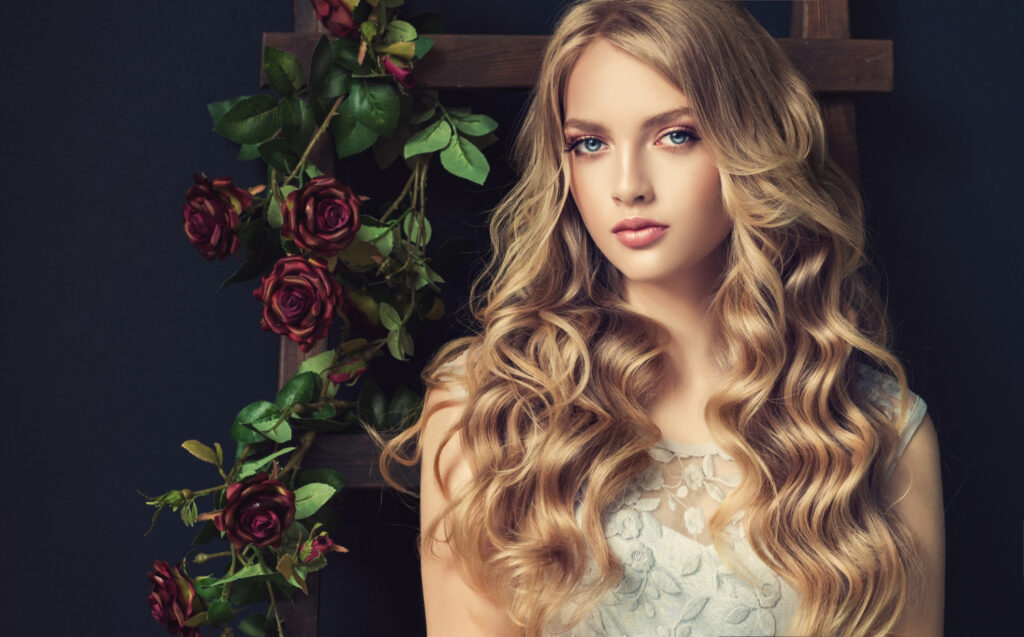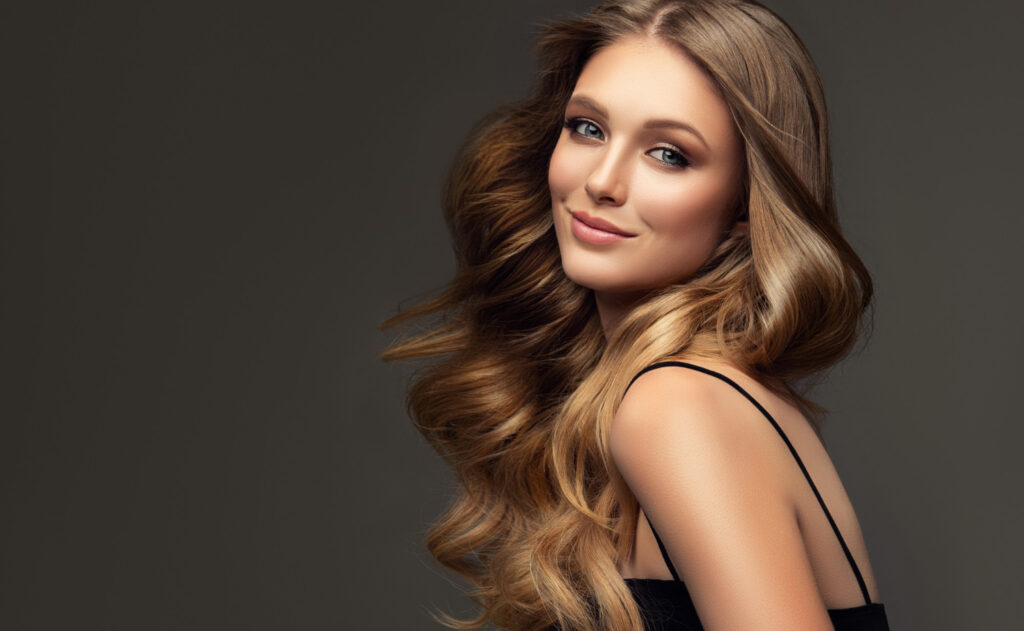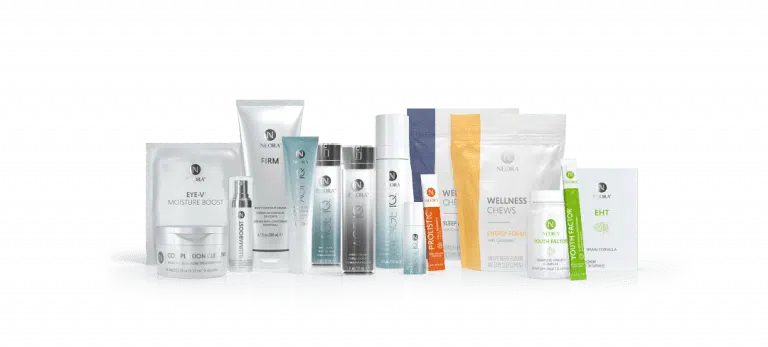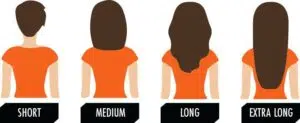Know Your Hair Type: A Comprehensive Guide to Tailored Haircare
Your hair is essential to your identity, reflecting your individual characteristics and personality. Knowing your hair type is more than just about looks; it’s the foundation of creating a customised haircare routine that gives your locks the care they deserve. This comprehensive guide will delve into the intricacies of hair texture, thickness, scalp health, and porosity, providing you with the knowledge to unlock the secrets to healthy, beautiful hair.

Hair Texture: Straight, Wavy, Curly or Coily?
Straight Hair
Straight hair is a hair type that appears sleek, smooth, and uniform in appearance, without any natural curls or waves. Its texture can range from fine to coarse, and it can be either shiny or dull. The hair strands in straight hair grow parallel to each other, giving it a streamlined appearance. People with straight hair often find it easy to manage and style, as it tends to maintain its shape well. However, it can also be prone to looking limp or lacking in volume, so adding texture or layers can help to create more dimension.
Thickness: It can range from fine strands that are delicate to touch to coarser strands with more substantial density.
Scalp: Straight hair tends to be prone to oiliness as the sebum from the scalp can easily travel along the straight shaft to the ends.
Care Tips:
- Opt for lightweight products to prevent weighing down your strands, maintaining their natural bounce and movement.
- Regularly cleanse your scalp with gentle shampoos to manage oil buildup without stripping away essential moisture.
Wavy Hair
Wavy hair is a hair type that is identifiable by its soft and flowing S-shaped waves that naturally add depth and texture to the hair. This type of hair is often associated with a more relaxed and carefree look, as it creates a more natural and effortless appearance. Wavy hair can be further categorised into different subtypes, ranging from loose and subtle waves to more defined and prominent ones, depending on the individual’s hair texture and natural curl pattern. Overall, wavy hair is a versatile and stylish hair type that can be easily styled for a variety of occasions, making it a popular choice among many people.
Thickness: Wavy hair can exhibit diverse thicknesses, from fine and wispy to thick and voluminous.
Scalp: It may present a combination of oiliness and dryness, requiring a balanced approach to scalp care.
Care Tips:
- Embrace your natural waves using curl-enhancing products that define and accentuate your hair’s texture.
- Choose sulphate-free shampoos to maintain optimal moisture levels and preserve the integrity of your waves.

Curly Hair
Curly hair is a type of hair that forms well-defined curls, which can range from loose to tight coils. These curls add dynamic volume and structure to the hair, creating a unique and eye-catching look. Curly hair is often characterized by its texture, which can be coarse or fine, and its tendency to frizz in humid conditions. The shape and size of the curls can also vary depending on the individual’s hair type and genetics. Overall, curly hair is a beautiful and versatile hair type that can be styled in a variety of ways to suit any occasion.
Thickness: Curly hair tends to be thicker in diameter compared to straight hair, often accompanied by a predisposition to frizz.
Scalp: Due to reduced sebum distribution, the curls’ structure can lead to scalp dryness.
Care Tips:
- Hydrate your curls with nourishing leave-in conditioners and oils to maintain moisture balance and minimise frizz.
- Minimise heat styling to prevent heat damage and preserve the natural integrity of your curls.
Coily Hair
Coily hair is a distinct hair type characterized by tightly coiled, spring-like curls or zig-zag patterns. The coils can be very small and densely packed, or larger and more elongated. This hair type is typically quite thick and voluminous due to the shape of the curls, which can make it challenging to manage and style. Coily hair tends to be drier than other hair types because the natural oils produced by the scalp have a harder time making their way down the hair shaft. This means that people with coily hair may need to take extra care to keep their hair moisturized to prevent breakage and maintain healthy, vibrant curls.
Thickness: Coily hair is dense and delicate, requiring careful handling to prevent breakage.
Scalp: The twists and turns of coil hair often result in naturally dry scalp conditions.
Care Tips:
- Prioritise regular moisturisation to preserve elasticity and minimise breakage, opting for hydrating hair masks and leave-in treatments.
- Detangle gently with wide-tooth combs to prevent damage and preserve the integrity of your coils.

Porosity
Porosity refers to the hair’s ability to absorb and retain moisture, which affects its health and appearance. Understanding hair’s porosity level is crucial for selecting appropriate haircare products and routines.
Characteristics:
- High porosity hair quickly absorbs moisture but struggles to retain it, often experiencing rapid moisture loss.
- The cuticles are open, allowing moisture to escape rapidly and making the hair more prone to damage.
Care Tips:
- Incorporate deep conditioning treatments into your routine to replenish moisture and strengthen the hair shaft.
- Seal the cuticles with nourishing oils or leave-in treatments to minimise moisture loss and enhance hair resilience.
Low Porosity Hair
Characteristics:
- Low porosity hair resists moisture absorption due to tightly closed cuticles, making it challenging to hydrate effectively.
Care Tips:
- Opt for lightweight hair products that won’t weigh down your strands, preventing buildup and maintaining volume.
- Apply gentle heat, such as warm towels or steam, to open the cuticles and facilitate better product absorption during conditioning treatments.

Common Mistakes to Avoid
To maintain healthy and vibrant hair, avoid these common mistakes:
- Overwashing: Excessive washing can strip away the natural oils that moisturise your hair, leading to dryness and brittleness.
- Heat Abuse: Limit heat styling tools to prevent damage and minimise the risk of heat-induced hair problems.
- Wrong Products: Choose haircare products tailored to your specific hair type and needs to optimise results and minimise potential damage.
- Ignoring Scalp Health: A healthy scalp is the foundation of healthy hair, so prioritise scalp care to promote optimal hair growth and vitality.
Your Personalised Haircare Routine
Create a personalised hair care regimen that suits your hair type and porosity level.
- Cleansing: Use sulphate-free shampoos to gently cleanse your hair and scalp, adjusting frequency based on your needs and lifestyle.
- Conditioning: Select conditioners formulated for your hair type and porosity level to hydrate, nourish, and protect your strands.
- Styling: Choose styling products that complement your natural hair texture and preferences, enhancing your unique beauty and style.
- Scalp Care: Maintain a clean and balanced scalp environment by incorporating scalp treatments and massages into your routine to promote circulation and stimulate hair growth.
Remember, taking care of your hair is an ongoing journey of exploration. Embrace your hair’s unique qualities, celebrate its diversity, and nurture it with the attention it deserves to reveal its full potential and radiance!



